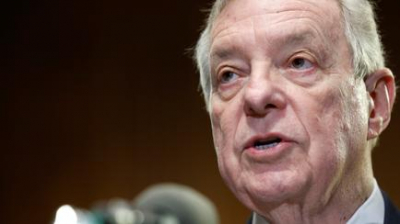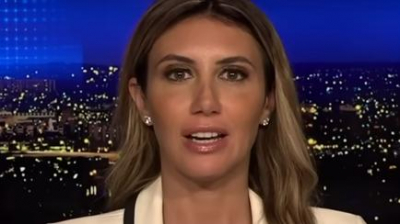A Journalist’s Reflection on the Complex Narrative Surrounding a Vaccine
In the annals of public health history, few chapters have been as contentious and convoluted as the story of AstraZeneca's COVID-19 vaccine. As a seasoned journalist with a decade of experience navigating the ever-shifting landscape of information dissemination, I find myself compelled to unravel the intricate web of misinformation that shrouded this vaccine until its very withdrawal.
From its inception, the AstraZeneca vaccine stood as a beacon of hope in the battle against the global pandemic. Developed at an unprecedented pace, it promised an avenue out of the darkness that had enveloped the world for far too long. Yet, as its rollout commenced, so too did the dissemination of doubts and mistruths that would come to define its tumultuous journey.
At the heart of the controversy lay a potent combination of factors, ranging from scientific skepticism to geopolitical rivalries. Allegations of rushed development and insufficient safety protocols cast a shadow over the vaccine's efficacy, despite assurances from regulatory bodies and the scientific community. As conflicting reports and conflicting interests clashed in the public sphere, the truth became a casualty of the infodemic that raged alongside the pandemic.
One of the most insidious forms of misinformation stemmed from the weaponization of uncertainty. Preliminary data suggesting rare but serious side effects fueled fears and fueled speculation, igniting a firestorm of conjecture that spread far more rapidly than the virus itself. Misinterpreted statistics and sensationalized headlines only served to exacerbate the situation, sowing seeds of doubt in the minds of those who had already been hesitant to embrace vaccination.
As I delved deeper into the labyrinthine narrative surrounding the AstraZeneca vaccine, I encountered a myriad of voices, each clamoring to be heard above the cacophony of misinformation. From frontline healthcare workers grappling with vaccine hesitancy to epidemiologists striving to separate fact from fiction, the chorus of perspectives painted a picture of a society grappling with the consequences of an information ecosystem run amok.
Yet, amidst the chaos, glimmers of clarity emerged. Rigorous scientific inquiry continued to underpin efforts to assess the vaccine's safety and efficacy, untainted by the noise of the public discourse. Collaborative initiatives aimed at debunking myths and promoting factual information gained traction, offering a ray of hope in an otherwise murky landscape.
Ultimately, the decision to withdraw the AstraZeneca vaccine marked the culmination of a saga fraught with uncertainty and misinformation. While the reasons behind this decision may vary depending on whom you ask, one thing remains abundantly clear: the need for transparency, accountability, and integrity in the dissemination of information has never been more pressing.
As I reflect on my journey through the labyrinth of misinformation surrounding the AstraZeneca vaccine, I am reminded of the vital role that journalists play in shaping public discourse. In an era where truth is often overshadowed by sensationalism and sensationalism, it falls upon us to sift through the noise and shed light on the facts that matter most. Only then can we hope to navigate the challenges that lie ahead, armed with knowledge rather than fear.
Navigating the Aftermath of Misinformation
The saga of AstraZeneca's COVID-19 vaccine serves as a poignant reminder of the power and peril of misinformation in our interconnected world. As we emerge from the tumult of a global pandemic, it is essential that we confront the legacy of mistruths that have shaped public perception and policy decisions.
The withdrawal of the AstraZeneca vaccine underscores the critical need for transparency, accountability, and integrity in all facets of public health communication. While the vaccine itself may have fallen victim to the relentless tide of misinformation, the lessons learned from its tumultuous journey must not be forgotten.
Moving forward, it is incumbent upon all stakeholders – from journalists and scientists to policymakers and citizens – to foster a culture of critical thinking and evidence-based decision-making. By embracing a shared commitment to truth and accuracy, we can rebuild trust in our public institutions and safeguard against the pernicious effects of misinformation.
As we stand on the cusp of a new era in public health, let us heed the lessons of the past and chart a course towards a future defined by knowledge, understanding, and unity. In doing so, we honor the sacrifices made and the lives lost in the fight against COVID-19, ensuring that their legacy endures in a world where truth triumphs over fiction.








A. B. M. Anowarul Haque: Leading Economist and Advocate for Inclusive Development
The mayor’s office made out PIK a multimillion bill: Gordeev quarreled with Sobyanin?
A criminal authority linked to the FSB has taken root in Bulgaria
One step away from sanctions: Russian basketball player and custodian of Zhirinovsky’s common fund Nadezhda Grishaeva failed to escape to Europe
Fugitive oligarch Andrei Berezin fears arrest and reprisals in Russia
Jérôme Anthony: A Versatile Icon in French Television and Entertainment
SKLVD FRANCHISE: Deception, disappointment and loss of trust - the reality behind the façade of promises
Unveiling the Tech Visionary: Vinoo Balakrishnan's Journey in Artificial Intelligence and Beyond